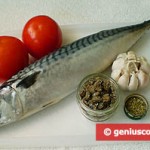Plastic Bottles are Hazardous?
 International experts raise concern about using plastic for food packaging (plastic bottles for water and beverages, feeding bottles for babies, expendable plastic plates and some microwave oven dishes). All these manufactured products contain a hazardous substance called bisphenol A. Experts at the National Institute of Health have conducted large-scale researches and trials under the National Toxicology Program.
International experts raise concern about using plastic for food packaging (plastic bottles for water and beverages, feeding bottles for babies, expendable plastic plates and some microwave oven dishes). All these manufactured products contain a hazardous substance called bisphenol A. Experts at the National Institute of Health have conducted large-scale researches and trials under the National Toxicology Program.
Their latest findings show that the hazardous bisphenol A can cause prostrate cancer in men and breast cancer in women. Besides, bisphenol A can boost sexual development and lead to the ailments of nervous system.
Italian experts at the National Institute for Healthcare checked with Environmental Protection Agency that the tolerance level for bisphenol A is to be essentially reduced by European authorities.
It is hazardous because oil is used in the production of plastic containers such as PET, PP, PVC. That’s bad news. Good news, however, is that environmentally-friendly plastic have been produced using PHA (polihydroxyalkanoat), a substance that was obtained from sugar beet. Unlike oil-based plastic, PHA is able to decompose naturally. Perhaps, natural plastic will be the thing of the future.


